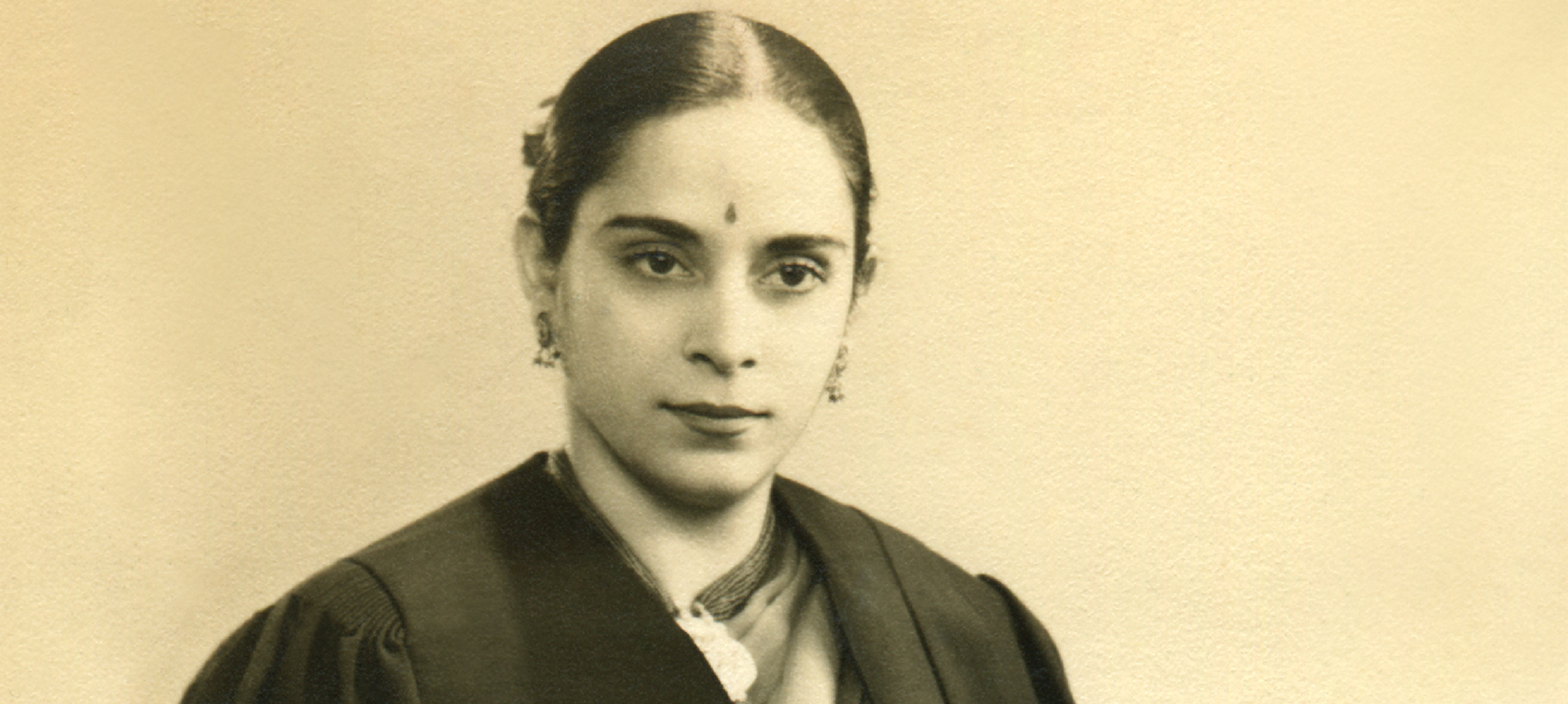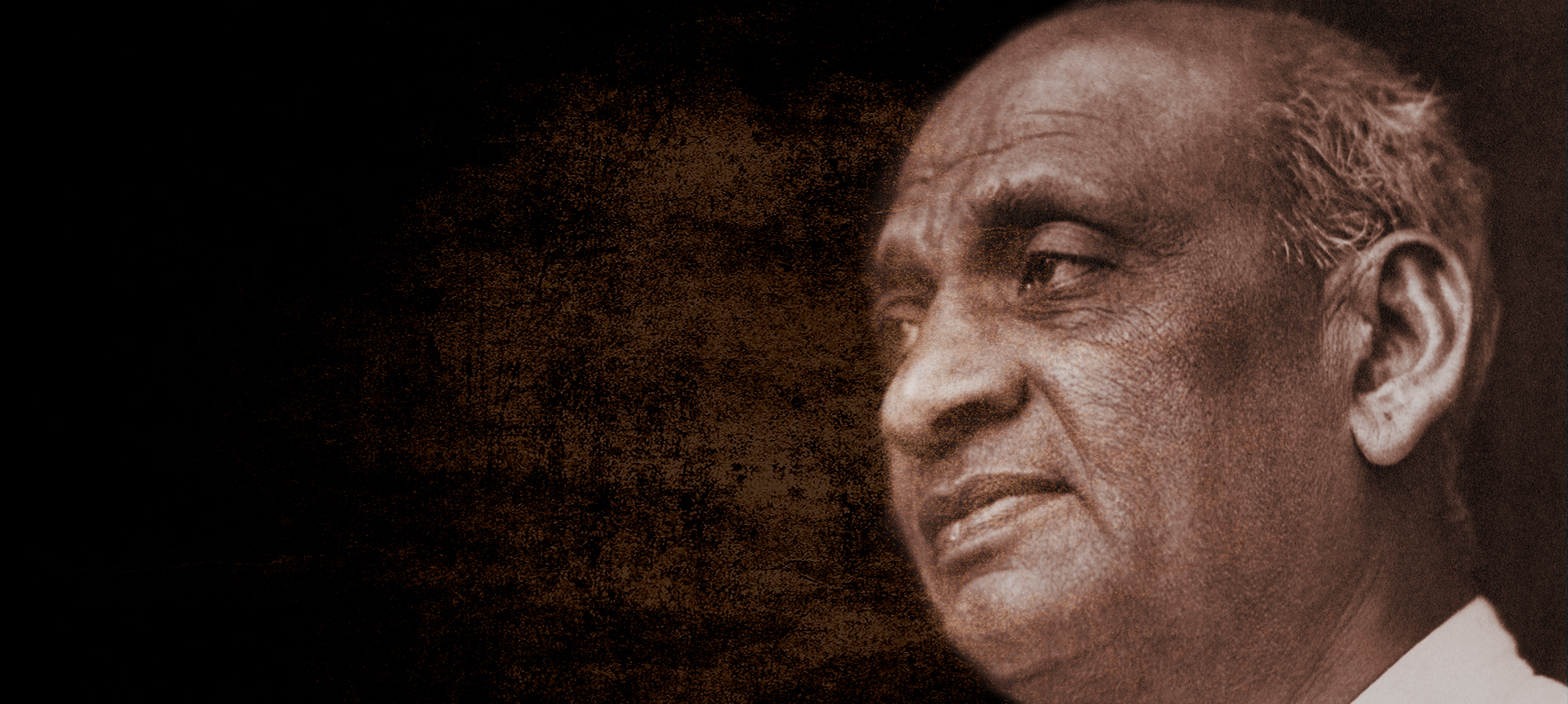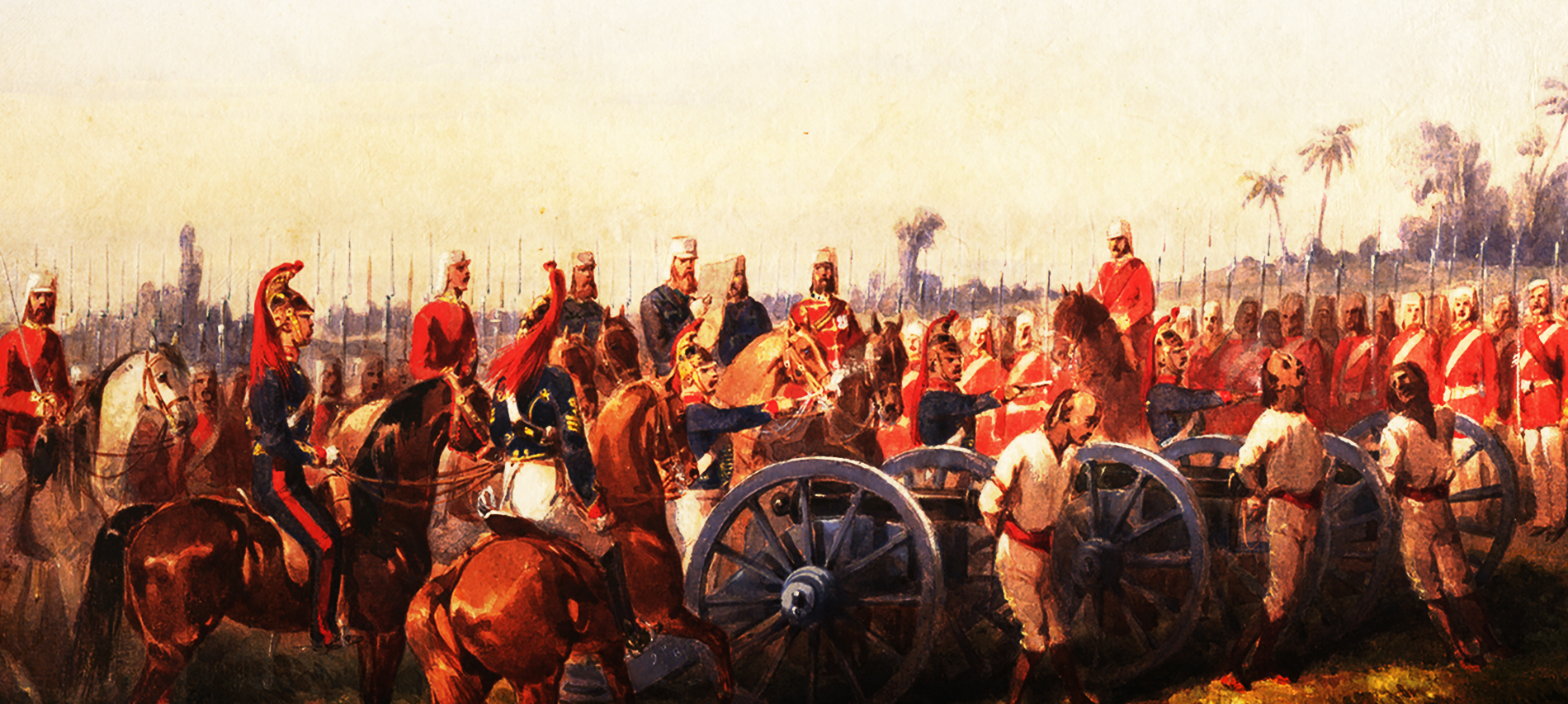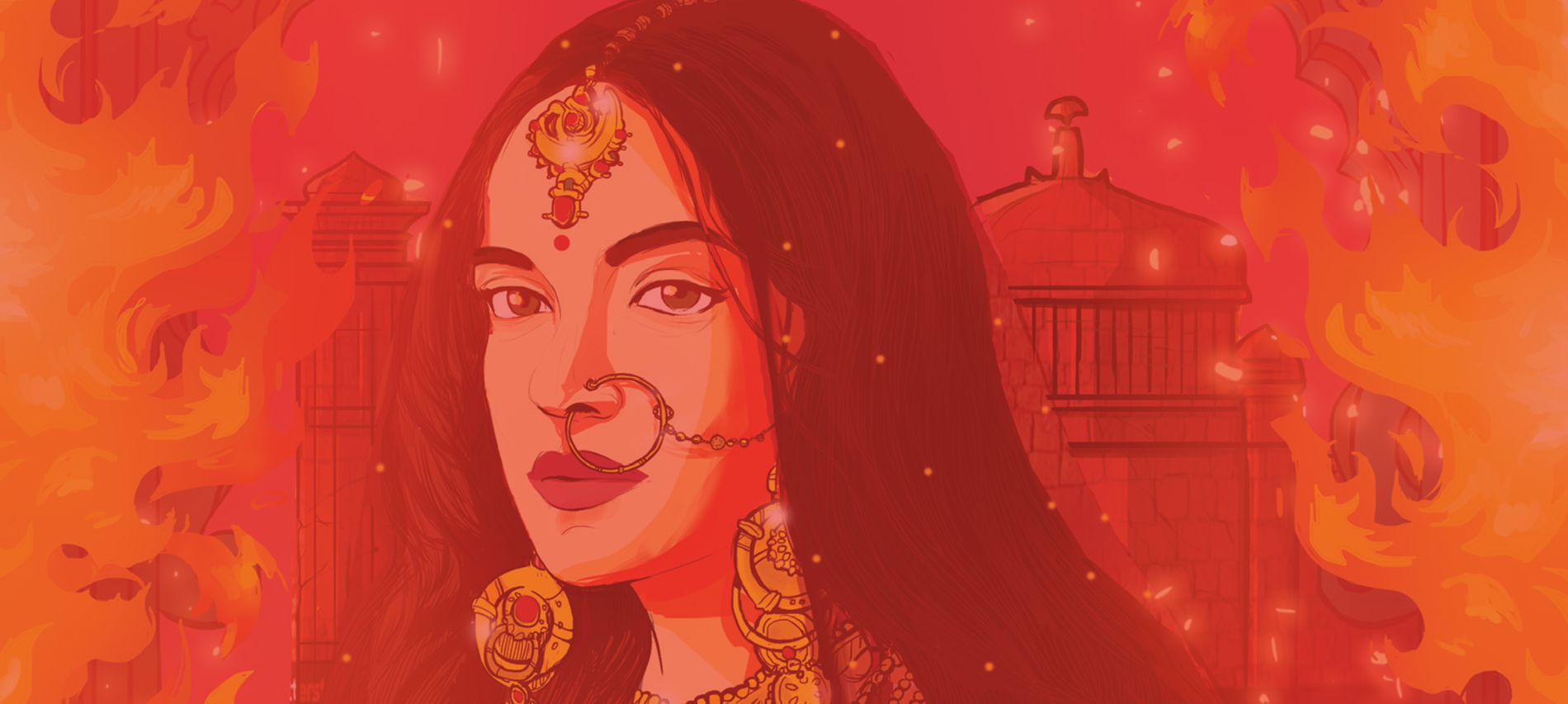Leila Seth was the first woman judge of the Delhi High Court and the first woman to be a Chief Justice of a state in India. She was responsible for the report on Free and Compulsory Education of Children. In this autobiography, On Balance: An Autobiography, Leila talks about life’s joyous as well as its difficult moments.
Let’s look at 5 charming and often amusing vignettes from her life.
—————-





Tag: Penguin India
Selected Speeches and Writings of Vallabhbhai Patel; An Excerpt
Vallabhbhai Patel, popularly known as Sardar Patel, was one of India’s towering leaders, whose contribution to the Indian Republic is immense. This book, Selected Speeches and Writings of Vallabhbhai Patel, showcases this great man’s commitment to develop this nation – his staunch belief in communal harmony, benefits of freedom for all citizens and in peace and cooperation between different regions.
Here’s an excerpt from the chapter, Build a Strong India Speech at Island Grounds.
————-
YOU WANT ME TO TALK TO YOU IN ENGLISH. I shall obey your command; but take it from me that it will not be long before you yourselves will have to speak in our national language. If you do not do that, you will drag the country backward. We have to exert our maximum effort to go forward. Unless you do that, I am afraid, you will suffer.
After a prolonged struggle the country has secured freedom, but it is not freedom of the kind that we wanted. It is not freedom of the kind that the deliverer of the country expected, and to our shame we have to confess that by our folly we have lost him. Now after his going we must do penance and try our best to deserve the freedom that he obtained for us.
Free India is only a child of a year and a half. It has yet to learn to walk; it has to grow, to be strong, and its future depends upon how we build today. Therefore, we have to nurse it carefully; we have to feed, clothe and strengthen it properly. It is our great good fortune that we have here a rare opportunity to build our own country in our own fashion. History will record what we are doing today.
The first requisite for building a strong, free India is unity and peace. If there is no unity in the country, it is bound to go down. Therefore, we must first of all adjust our differences and behave in such a manner that there is complete harmony and peace in the country. You cannot expect the Government continuously to maintain peace by force. It would be an evil day when in this country the Government has to use repressive measures permanently. Today we are passing through a period of crisis and our young men have, in their impatience, not realised that the freedom which has been obtained with great difficulty is likely to be lost or likely to give no benefit, no advantage, if we do not appreciate that our present duty is to unite and consolidate our freedom.
We lost our leader because we forgot the very first lesson. If we do not realise even after his going that in unity lies our strength, then greater misfortune will befall us.
For unity, we must forget differences of caste and creed and remember that we are all Indians, and all equal. There can be no distinction between man and man in a free country. All must have equal opportunities, equal rights and equal responsibilities. This is difficult for achievement in practice, but we must continuously strive towards that end.
There is one other thing that we have to do to maintain peace and order in this country. For a few years at least, till we are able to stand on our own legs, we must forget that we can every now and then threaten the Government. We cannot function if the Government is to be challenged day after day by groups of people who want to have their own way. What they want may be, according to their own honest thinking, very good; but Gandhiji has put before us the ideal of obtaining what we want by peaceful methods and through truth and non-violence. If people begin to threaten and challenge Government’s authority and try to overthrow it to gain their objectives by force, the latter would not be able to do anything constructive. Forces are existing in this country which would create chaos and disorder, which would weaken the country instead of strengthening it.
We in the Government have been dealing with the R.S.S. movement. They want that Hindu Rajya or Hindu culture should be imposed by force. No Government can tolerate this. There are almost as many Muslims in this country as in the part that has been partitioned away. We are not going to drive them away. It would be an evil day if we started that game, in spite of partition and whatever happens. We must understand that they are going to stay here and it is our obligation and our responsibility to make them feel that this is their country. It is, of course, their responsibility, on the other hand, to discharge their duties as citizens of this country.
We must all understand that partition is behind us. It has to come to stay. I honestly believe that it is good for both the new nations to be rid of a perpetual source of trouble and quarrels. In two hundred years of slavery, the administration created a situation in which we began to drift away from each other. It is good that we have agreed to partition in spite of all its evils; I have never repented my agreeing to partition. From the experience of one year of joint administration when we have not agreed to partition, I know we would have erred grievously and repented if we had not agreed. It would have resulted in a partition not into two countries but into several bits. Therefore, whatever some people may say, I am convinced and I remain convinced that our having agreed to partition has been for the good of the country.

Hinduism and Nature by Nanditha Krishna – An Excerpt
A historian, environmentalist and writer based in Chennai, Nanditha Krishna has a PhD in Ancient Indian Culture from Bombay University. Her latest book, Hinduism and Nature, delves into the religion’s deep respect for all life forms, the forests and trees, rivers and lakes, animals and mountains, which are all manifestations of divinity.
Let’s read an excerpt from this book.
————–
Forests have always been central to Indian civilization, representing the feminine principle in prakriti. They are the primary source of life and fertility, a refuge for the wanderer and a home for the seeker, and have always been viewed as a model for societal and civilizational evolution.
Forests were places of retreat, a source of inspiration, for all Vedic literature was revealed to the sages here. Rama’s entire journey from Ayodhya to Lanka was through forests. In the Mahabharata, the big war is for urbanization and to capture the cities of Mathura, Hastinapur and Indraprastha. Yet the Pandavas spent their years of exile in the forest and made marriage alliances with forest tribes, a move that would help them later in the Kurukshetra war. They also learnt several important lessons from living in the forest, which became a source of knowledge and a place for learning higher truths. There were several classifications of the forest. The ancient forests have survived as the sacred groves of modern India. The seals of the Indus civilization contain figures of wild animals such as the elephant, water buffalo, rhinoceros, deer, gazelle, antelope, wild sheep and goat and ibex and tiger, which means that the area was once covered with dense forests. Rhino habitat ranges from open savannah to dense forest, while tigers live in swamps, grasslands and among trees, bushes and tall grass which camouflage them. Elephants are found in savannah and forests, where they can find fresh water to cool their thick dark skins. The large number of such seals suggests that the Indus–Sarasvati region was once a thick forest, not the agricultural fields or deserts we see today.
The Vedas were composed in the Indus–Sarasvati region. In these texts, there is a fundamental sense of harmony with nature, which, in turn, nurtured a civilizational value. Forests were the primary source of life and inspiration, not a wilderness to be feared or conquered. The Vedas were written by sages living in the forest who saw it as a home and a source of revelation, exaltation and creativity. Some of the greatest verses of philosophy were written in forests. People drew intellectual, emotional and spiritual sustenance from the twin concepts of srishti and prakriti.
‘So may the mountains, the waters, the liberal (wives of the gods), the plants, also heaven and earth, consentient with the Forest Lord (Vanaspati) and both the heaven and earth preserve for us those riches’
One of the most beautiful hymns of the Rig Veda is dedicated to Aranyani, the goddess of the forest. She is an elusive spirit, fond of solitude, and fearless. The poet asks her to explain how she can wander so far from civilization without fear or loneliness. He creates a beautiful image of the village at sunset, with the sounds of the grasshopper and the cicada and the cowherd calling his cattle. She is a mysterious sprite, never seen, but her presence is felt by the tinkling of her anklets and her generosity in feeding both man and animal:
Aranyani Aranyani, who are, as it were, perishing there, why
do you not ask of the village? Does not fear assail you?
When the chichchika (bird) replies to the crying grasshopper,
Aranyani is exalted, resonant, as with cymbals.
It is as if cows were grazing, and it looks like a dwelling, and
Aranyani, at eventide, as it were, dismissed the wagons.
This man calls his cow, another cuts down the timber,
tarrying in the forest at eventide, one thinks there is a cry.
But Aranyani injures no one unless some other assails;
feeding upon the sweet fruit, she penetrates at will.
I praise the musk-scented, fragrant, fertile, uncultivated
Aranyani, the mother of wild animals
(Rig Veda, X.146. 1–6)

Things you should know about one of India’s Foremost Functional Trainer – Shivoham
A former professional swimmer and water polo player, Shivoham has trained many Bollywood actors who swear by his diet and workout regime. One of India’s foremost functional fitness trainers, Shivoham in his book, The Shivfit Way: A Comprehensive Functional Fitness Programme, outlines the eight basic movements of all exercises that will help you achieve a strong body and ensures you meet all your fitness goals.
Here are a few lesser known facts about this phenomenal trainer.
————————-



 ————-
————-

5 Ways in which The Skull of Alum Bheg made us rethink History
Kim A. Wagner is senior lecturer in British Imperial History, Queen Mary, University of London. He has written three previous books on Thuggees and on the 1857 Uprising. In his latest, The Skull of Alum Bheg: The Life and Death of a Rebel of 1857, he presents an intimate and vivid account of life and death in British India in the throes of the largest rebellion of the nineteenth century. Examining the colonial practice of collecting and exhibiting human remains, this book offers a critical assessment of British imperialism that speaks to contemporary debates about the legacies of Empire and the myth of the ‘Mutiny’.
Let’s go through these 5 facts about Alum Bheg that make us rethink history.






Demystifying the Spirited Queen of Chittor, Padmini
At the beginning of the fourteenth century, Ala-ud-Din Khilji became infatuated with the famed beauty of Rani Padmini. He arrives at her doorstep in Chittor and lays siege to her fort. Despite putting up a brave fight, when defeat came to her doorstep, she chose jauhar over dishonour.
Mridula Behari in ‘Padmini’ gives a voice to the famed queen and brings to life the atmosphere and intrigue of medieval Rajput courts.
Here are a few facts about the legendary queen.
 “Once an eminent astrologer had visited Tamragarh…Mother had invited the acharya to her chambers. On his arrival, she had asked him to carefully study the stars of the daughter of the Pratihar Pawar king and foretell her future. Upon hearing about the prophecy, little Padma had watched her mother beam as though her heart had turned into a heaven-kissing tower of joy and a vast ocean of love at the same time . . .”
“Once an eminent astrologer had visited Tamragarh…Mother had invited the acharya to her chambers. On his arrival, she had asked him to carefully study the stars of the daughter of the Pratihar Pawar king and foretell her future. Upon hearing about the prophecy, little Padma had watched her mother beam as though her heart had turned into a heaven-kissing tower of joy and a vast ocean of love at the same time . . .”
 “There were already murmurs about her beauty, of the poetry that spun out of the lips of those who had seen her. There were those eager to see her and those who waited to scoff at the beauty they had only heard about. Yet, when the ghunghat was gently raised, it rendered everyone speechless.”
“There were already murmurs about her beauty, of the poetry that spun out of the lips of those who had seen her. There were those eager to see her and those who waited to scoff at the beauty they had only heard about. Yet, when the ghunghat was gently raised, it rendered everyone speechless.”
 “Veerbhan had thought that he could sweet talk Padmini into accepting the decision… What he saw of her was beyond his wildest imagination. Her eyes, her cheeks, her forehead turned red with indignation. Affronted by his brazen retort, she felt aggressive and resolute in her conviction.”
“Veerbhan had thought that he could sweet talk Padmini into accepting the decision… What he saw of her was beyond his wildest imagination. Her eyes, her cheeks, her forehead turned red with indignation. Affronted by his brazen retort, she felt aggressive and resolute in her conviction.”
 “Her eyes were fixed on the tip of her nose. She stopped breathing. She appeared to be taking the agni samadhi, meditating in the lap of the leaping flames. More firewood was thrown in. With the ghee being poured in, the flames rose higher and higher, and her delicate, beautiful body became one with the fire.”
“Her eyes were fixed on the tip of her nose. She stopped breathing. She appeared to be taking the agni samadhi, meditating in the lap of the leaping flames. More firewood was thrown in. With the ghee being poured in, the flames rose higher and higher, and her delicate, beautiful body became one with the fire.”
Aren’t these facts fascinating?

Know Lord Meghnad Desai
Meghnad Desai was born in Vadodara, Gujarat and is now an active member of the British Labour Party since 1971. He was made Lord Desai of St Clement Danes in 1991 and awarded the Bharatiya Pravasi Puraskar in 2004 and the Padma Bhushan in 2008.
His latest book, ‘The Raisina Model: Indian Democracy at 70’ reflects on Indian democracy as it completes seventy years of colourful, eventful and energetic parliamentary existence.





————–

5 lines from literature that go beyond ‘I love you’
Since time immemorial, the most famed couples of literature have used the three magical words, “I Love You” to express their deepest sentiments. However, there are some that have found a way beyond.
Here, we look at five such quotes which expresses love in an equally beautiful way.




 ——————–
——————–

A Piece of Cake; An Excerpt
An alumna of Lady Shri Ram College, New Delhi, and an MBA from IIM Calcutta, Swati Kaushal is the bestselling author of five highly acclaimed novels. Her book, Piece of Cake, is a romantic comedy set in the corridors of corporate intrigue with a heroine and a plot sparkling with mischief and a ton of attitude
Here’s an excerpt from this ‘desi Bridget Jones’ novel.
———-
TGIwasF.
I’m not really your manicure-pedicure-facial kind of girl, but the past few days of sun and sand had been rather hard on the epidermis, and my face was ready to give up on me.
God bless the folks at Femina and their compulsive sampling; the ‘Mud spa treatment five-minute masque’ (with natural papaya, grapefruit and cucumber) that came with last month’s issue seemed just the thing. I smothered the pistachio green paste all over my face and neck and waited for ‘new and improved’ ancient science to work its wonders. An encouraging coolness spread across my features, followed by a promising firmness. No wonder women swore by the stuff; it sure beat sticking your head in the fridge and pulling at your cheeks, besides being a lot cheaper than a visit to a spa too! (I remember going to one of those beauty boutiques a couple of months ago with Radha; she’d paid five hundred rupees for one hour with the ‘special thermal pack’; a lava-like substance that had solidified in many crusty layers on her face and had come off whole, like a hollow Egyptian mummy.)
I studied my face in the mirror as I waited for the masque to do its stuff. A guy in Class 11 had once told me I was beautiful. I’m assuming it was hormones, or my Chemistry notes.
It’s not that I’m ugly; in fact I like most of the way I look. It’s just that I wish I didn’t have a big forehead, long nose and extra wide lips in that slightly non-Julia Roberts kind of way. And also my sideburns. I could definitely do without them. I turned my head sideways to check their current length, winced, and turned my head back around again.
At least I had good eyes. On the bigger side like everything else, but intelligent; and they looked especially arresting popping out from the green icing around them. And my eyebrows, and the way they never need threading; I especially like that. In fact not bad, all told, if only there were something I could do with the ears. I squeezed out the last of the green paste from the sample sachet and quickly covered them with it.
My ears are a social embarrassment and cause for deep personal anguish. I have no lobes.
I remember a visit to an ear-piercing salon, many years ago, when the entire staff had buzzed excitedly about my ears, in the manner of scientists around a rare specimen measuring and marking with special finely calibrated rulers to find a spot to pierce. In the end they’d recommended I forget the whole idea.
I’m assuming God used up so much material super-sizing the rest of me that he ran out of stuff to throw on the ears, so he just sort of wrapped up the job with comical miniatures, tucked them behind manly sideburns and hoped no one would notice. Of course, it didn’t work. People notice all the time; my ears are bigger draws than cleavage.
It wouldn’t be so bad if it were just a case of size and appearance. What really distresses me is that I am also tone-deaf. I love music, but my ears just don’t get it. Ever noticed how musicians tend to have nice, big ears with extra-large ear lobes that hang and quiver delicately at the ends, like they were specially designed to pick up variations on even a hundredth of a note? Well, mine have yet to acknowledge the differences between a do, re and mi and I have watched The Sound of Music a thousand times. And I’m sure things would have worked out with Rajiv, back in Class 12, if it hadn’t been for the time I got carried away and tried to sing ‘With a little help from my friends’ in his ear..

Meet the characters from Fear is the Key
In Juggi Bhasin’s new title, Fear is the Key, Simone, fiancée-to-be to Rahul, founder of a digital infotainment site, goes missing. As all investigations come to naught, Rahul takes matters into his own hands and soon uncovers the twisted, bizarre and utterly unbelievable truth.
Let’s meet the three main characters of Juggi Bhasin’s gripping new thriller, Fear is the Key.
Rahul Abhyankar

Suhel Bagga

Simone

Atypical characters and a fast-paced, mind numbing plot; Fear is the Key has to be your must read thriller this month!

















